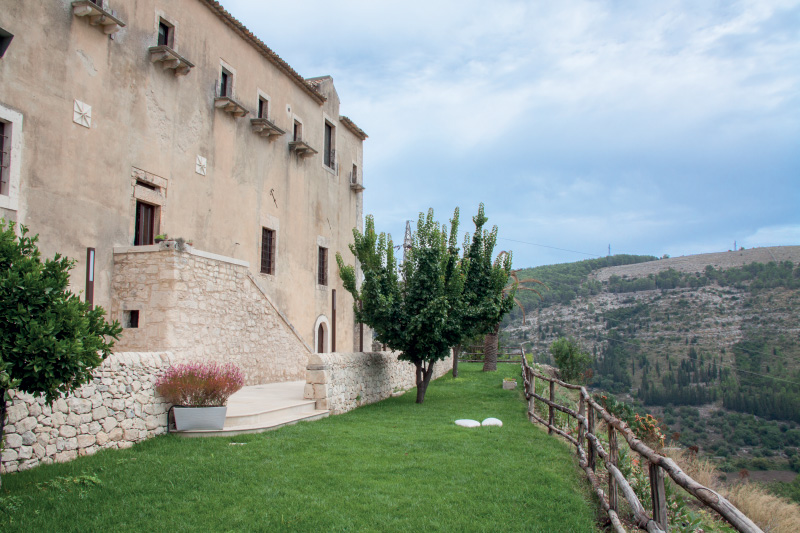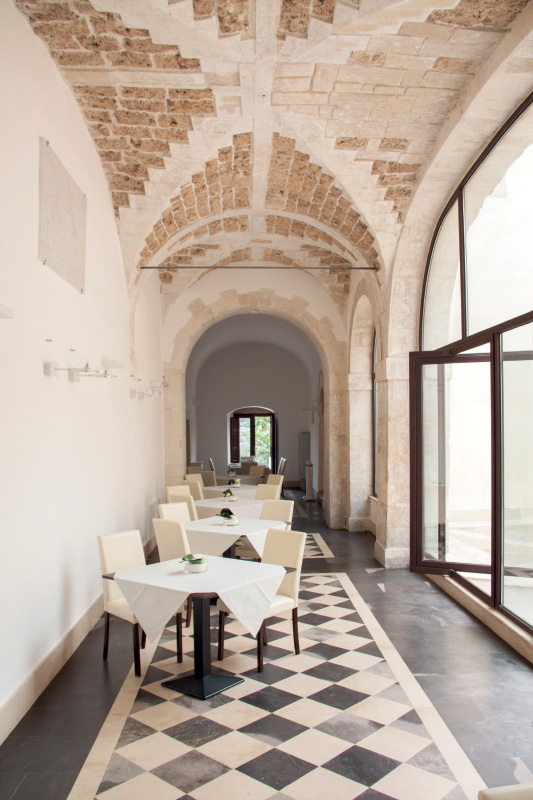In the Divine Comedy, Dante punishes the greed, putting them in the third circle of hell. Cicero had a different opinion, defining “hunger the best spice of food”. And maybe even the Church doesn’t consider “indulgence” as such any longer, having instituted a Haute Cuisine School for the first time. In Ragusa Ibla, overlooking onto the green valley of the Irminio river, the Antico Convento dei Cappuccini (Old Capuchin Convent), which hosts the Mediterranean School of Wine and Food “Nosco”, was inaugurated few months ago. The project rises from a strong will of the bishop of Ragusa Monsignor Paolo Durso, who wanted to value a cultural good of the 16th century rare testimony surviving the 1693 earthquake, together with the Saint John Baptist Foundation. However, main purpose is the social one, promoting the place as bridge of Mediterranean meetings and intercultural exchanges. The completely restored building also hosts 16 rooms (once 40 cells) and a restaurant “Il Cenobio”, where one can taste seasonal cuisine with local products and a special attention to organic farming. This is where the young apprentices coming from all over Italy have the chance to access the didactic restaurant kitchen, going from the training room to the use of acquired knowledge during the courses.
Chef Giuseppe Barone manages the School and also runs the hall’s and hotel’s direction, besides organising Haute Cuisine and Haute Patisserie courses. “It’s a great satisfaction – says the Sicilian Chef – having the chance to guide this ambitions project. We pay much attention to the respect for nature and for what the land offers us; that’s why, compared to other Italian schools, I wanted to add new teaching methods, choosing distinguishing modules. You start with the module of sensorial memories, meant as research on enogastronomic knowledge of the territory. The other course relates to the sensorial analysis for a proper gastronomic interpretation, and the wine-tasting and oil-tasting module”. On the other hand, the “simple vegetable garden”, where students will be able to experiment and get to know the origins of raw materials, is in completing stage. Among the works to be restored, there’s also the old Library of the Capuchin Friars, which will be converted not only into reading and tasting place, but also research centre for the recovery of recipes of monastic tradition.

Recommended song for the reading of the present article: Bad Luck Blues – Joy of cooking





